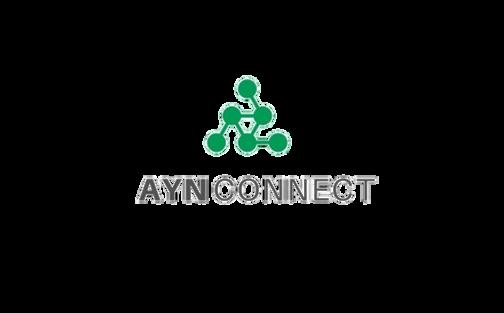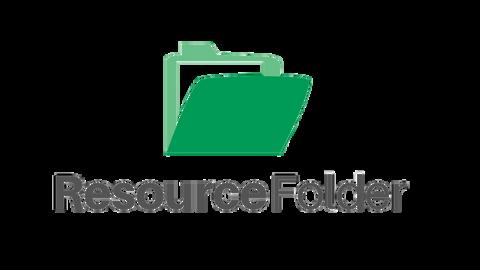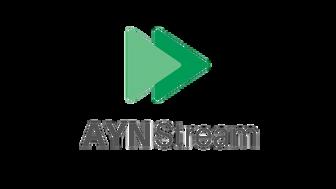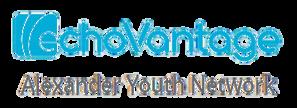

PLAYBOOK
A MESSAGE FROM OUR CEO
ALEXANDER YOUTH NETWORK CHIEF EXECUTIVE OFFICER
On behalf of the Senior Management Team, I am delighted to welcome you to the Alexander Youth Network! We are honored you have chosen to join us on this transformative journey.
Our mission is clear and powerful: to provide quality treatment to children with serious emotional and behavioral challenges, enabling them and their families to achieve their potential and contribute positively to society. Every day, you have the incredible opportunity to change lives and create lasting impact.
What sets us apart is not just our expertise but the compassion and dedication we bring to our work. As you become part of our vibrant community, remember to lean on your colleagues, ask questions, and share your insights. Every interaction and challenge you overcome brings us closer to fulfilling our mission.

Together, we can make a profound difference in the lives of countless children and their families. Here’s to a future filled with hope, resilience, and positive transformation.
Best regards,
N. Craig Bass, ACSW Chief Executive Officer Alexander Youth Network
INTRODUCTION THE PLAYBOOK
Introduction: ThePlaybook
Purpose of The Playbook
Welcome to The Playbook! This eBook is a central resource for all employees, providing a clear overview of our program expectations and guidelines. Our goal is to ensure everyone in your department has consistent, accurate information, helping us maintain high standards and achieve our goals.
Why the Playbook?
Enhance Clarity: Ensure everyone understands their roles and aligns with department goals.
Improve Communication: Clearly communicate expectations, reducing misunderstandings.
Support Training: Serve as a resource for onboarding and ongoing training.
Facilitate Accountability: Establish clear benchmarks and performance indicators.
How the playbook can help you
Program Overviews: Detailed descriptions of each program and key performance indicators.
Expectations: Clear outlines of your role and tasks.
Resources: Access to templates, forms, and contact information.
Procedures: Step-by-step guides to our processes.
Improvement: Best practices and tips for better performance.
Using The Playbook, you’ll have the tools to perform your job effectively and contribute to our department’s success. This eBook will be an invaluable resource in your professional journey.
Qualified / Associate Professionals
Program Manager
VP of Residential Services
Executive Director - FBC
Behavior Health Counselor
Clinicians / Therapists Nurse Manager Service Authorization / Transition Coordinator
Registered Nurse’s
Program Overview
The Facility-Based Crisis (FBC) Program at Alexander Youth Network offers crisis stabilization services for youth aged 6-17, addressing acute mental health crises, intellectual or developmental disabilities, and substance use disorders.
The program is a therapeutic alternative to hospitalization, offering a secure environment for rapid stabilization. FBC services are available 24/7, 365 days a year, and the program is accredited by the Joint Commission on Accreditation of Healthcare Organizations, ensuring high standards of care.
Target Population and Capacity
Ages Served: Youth ages 6 to 17
Capacity: Up to 16 clients at a time
Average Length of Stay: 7 to 14 days, depending on individual needs
Service Area: Open to youth from across the region, providing a vital option for those in crisis needing stabilization without hospitalization.

Treatment & Therapeutic Interventions
FBC employs a trauma-informed approach to care, focusing on stabilizing youth in crisis, reducing symptoms, and preparing them for reintegration into their homes or communities Key treatment components include:
Crisis Stabilization: Immediate intervention to address psychiatric, behavioral, or substance-related crises
Family Involvement: Families are actively engaged in the treatment process through therapy and regular meetings, promoting long-term recovery
Multidisciplinary Care Team: Psychiatrists, therapists, nurses, and other professionals provide comprehensive care tailored to each child’s needs
Post-Discharge Support: Discharge planning begins early and includes referrals to community services, crisis plans, and medication management
Five Key Components for Implementing and Maintaining a Trauma-Informed Framework
Organizational Assessment
Begin with a baseline assessment and regularly reassess to improve.
Paradigm Shift
Shift from traditional methods to a continuous trauma-informed approach
Wellness and Self-Care
Promote self-care and overall wellness for everyone
Safety
Ensure a safe environment for both clients and staff.
Everyone Included Involve all staff, not just clinical teams, in trauma-informed care
ComprehensiveAssessments
Uponadmission,clientsreceivedetailed evaluationstodeterminetheircareneeds
IntensiveTherapeuticInterventions
Focusedtherapysessionsdesignedtostabilize symptomsandteachcopingskills
MedicalMonitoringandMedication Administration
Registerednursesmonitoringandmanage medicationadministration.
CrisisDe-escalationTechniques
Staffaretrainedintrauma-informedmethodsto de-escalatecrisesandensuresafety.
FamilyPsychoeducation
Familiesareeducatedabouttheirchild’s conditionandtreatmenttosupportongoing care.
DischargeandTransitionPlanning
FBCstaffcoordinatecommunityreferrals, dischargeplanning,andschoolreintegration whennecessary.
Ask your Program Manager how these services are specifically provided in your program.
PROGRAM EXPECTATIONSProgramExpectations
Daily Program Structure
The program follows a structured schedule designed to provide stability, promote therapeutic progress, and engage youth in positive activities.
1. Morning Routine:
Starts with personal hygiene and a healthy breakfast.
Treatment Community Meeting (TCM): A morning meeting to set goals for the day and review treatment objectives.
2.Morning Programming:
Group therapy sessions, recreational activities, and educational support focusing on skill-building, emotional regulation, and coping strategies.
3.Mid-day Activities:
Personal care and reflection time followed by lunch and a chance for social interaction or quiet time to recharge.
4.Afternoon Programming:
Additional group sessions, personal reflection, and recreational activities. Goal-setting session to assess progress and plan for continued growth.
5.Evening Schedule:
After dinner, clients participate in personal hygiene routines, quiet reflection, and recreational activities to wind down for the day.
Program Expectations
Clients are expected to actively engage in the program and contribute to a positive environment. Key expectations include:
Punctuality: Be on time for all scheduled activities.
Active Participation: Fully engage in therapeutic and group sessions.
Personal Care: Utilize hygiene and personal care time appropriately.
Community Involvement: Participate in maintaining shared spaces and supporting peers.
Therapeutic Engagement: Attend and actively contribute during TCM and other therapy sessions.
Program Objectives
The FBC program aims to:
Reduce Symptoms: Implement evidence-based interventions to manage the crisis and reduce hospitalization risks.
Crisis Prevention: Develop comprehensive Crisis Prevention Plans to avoid future crises.
Family Communication: Improve family functioning and communication through active involvement in therapy.
Community Reintegration: Help clients transition smoothly back into the community, school, or higher levels of care.
Clinical Outcomes
The Crisis Stabilization Scale (CriSS) is used to evaluate a client’s ability to cope and their commitment to follow-up care. Administered 72 hours before discharge, CriSS assesses:
Coping Skills: Clients' ability to commit to safety and utilize coping strategies. Follow-up Readiness: The child’s commitment to pursuing ongoing treatment after discharge
Service Type
The FBC program is a short-term, intensive treatment option that offers: 24/7 Emergency Psychiatric Care: Crisis stabilization for children with psychiatric or behavioral emergencies.
Secure, Structured Environment: Ensures client safety through deescalation techniques, trauma-informed care, and staff support.
Staff are trained in de-escalation and use Guard1 devices for routine safety checks and immediate assistance if needed.
ProgramStaff
TheFacility-BasedCrisis(FBC)Programteamconsistsofdedicated professionalsworkingtogethertoprovidesafe,effective,andtrauma-informed caretoyouthincrisis.Belowarethekeystaffrolesandtheirprimary responsibilities:
ExecutiveDirector:Overseesoverallprogrammanagement,ensuring compliancewithservicestandardsandbuildingkeycommunity partnershipstosupporttheprogram’ssuccess.
ProgramManager:Managesdailyoperations,staffing,andthesupervision ofBehavioralHealthCounselors.Ensuresconsistencyinservicedeliveryand adherencetocarestandards.
LicensedClinicians:Conductclinicalassessments,createindividualized treatmentplans,providetherapy,andcoordinatedischargeplanningand communityreferrals.
MedicalDirector:Overseesmedicalandpsychiatriccare,ensuring appropriatetreatmentandmedicationmanagement.Workscloselywith nursesandmedicalstafftoensurequalitycare.
NurseManager:Supervisesnursingstaff,overseesmedication administration,andensuresthatallhealthandsafetyprotocolsarefollowed. Managesmedicalcareandemergencyresponseprocedures.
RegisteredNurses(RNs):Monitorclienthealth,managemedications,and providemedicalcare.TheycoordinatewiththeMedicalDirectorandNurse Managertoaddressmedicalneeds.
LeadBehavioralHealthCounselors:SuperviseBehavioralHealth Counselors,coordinatedirectcareactivities,andensureadherencetosafety protocolsandtherapeuticinterventions.
BehavioralHealthCounselors:Providedirectcaretoclients,monitor safety,andimplementdailytherapeuticactivitiesunderthesupervisionof theProgramManagerandLeadCounselors.
Qualified/AssociateProfessionals(QP/AP):Assistwithintake,maintain clientrecords,andensureadministrativetasksarecompletedtosupport dailyoperationsanddocumentation.
PROGRAM EXPECTATIONSProgramExpectations
Training and Supervision
All staff receive comprehensive training before working with clients to ensure they are equipped to provide high-quality care. Key areas of training include:
TCI
Trauma-Informed Care Practices Crisis Intervention Techniques
De-escalation Techniques Suicide Prevention Strategies
Supervisionisongoingtomaintainhighcarestandards. AssociateProfessionalsandParaprofessionalsreceiveregularsupervision fromQualifiedProfessionals,asoutlinedintheirindividualsupervisionplans.
ReliasLearningPlatform
ReliasisourmainplatformfortraininganddevelopmentatAlexander YouthNetwork.Itoffersbothmandatoryandelectivecoursestokeep youup-to-dateonessentialskills,meetcompliancerequirements,and supportyourprofessionalgrowth.
MandatoryTraining:Certaincoursesarerequiredforcompliance.You’ll receivereminders,andit’syourresponsibilitytocompletethesebythe deadlinetoupholdourstandardsofcare.
ProfessionalDevelopment:Exploreelectivecoursestoexpandyour skillsandenhanceyourrole
Documentation
Timely and accurate documentation is essential for maintaining quality care, ensuring proper billing, and meeting regulatory requirements. All documentation must be completed as soon as possible and no later than 24 hours after providing the service or intervention.
Progress Notes: Nurses complete shift notes in EchoVantage at the end of each shift, which include a mental status exam and an overview of the client’s participation.
Case Notes: Documented by all staff to log any regular contact or communication regarding a child. This may include phone calls made by the client, conversations with guardians, or communications with referring agencies, care coordinators, or payors.
Intervention Notes: Completed by therapists and case managers to document individual and group therapy sessions or provide a comprehensive summary of treatment. Case managers also use these notes to document Child and Family Team meetings and summarize discharge expectations.
Assessment Notes: Clinical staff complete a brief admission review at intake, followed by a Comprehensive Clinical Assessment (CCA) or reassessment before discharge. The CCA provides clinical recommendations for post-discharge services.
Initial Psychiatric Assessment and Ongoing Management: All clients are seen by a psychiatrist within 24 hours of admission for an initial psychiatric evaluation. Follow-up sessions are scheduled at regular intervals based on the provider's recommendations to monitor and adjust medications as needed.
Restrictive Intervention Guidelines
Used only in emergencies for imminent risk of harm.
Key points:
Only trained, authorized staff may initiate interventions.
Staff must complete specific training (de-escalation, Handle with Care, monitoring, CPR, first aid).
Continuous monitoring during and after interventions.
Follow age-based time limits.
Stop interventions as soon as the individual is calm.
Conduct debriefing within 24 hours.
Incident Reporting
All staff are required to report incidents such as injuries, hospitalizations, aggression, or runaway situations. An Incident Report must be completed whenever such events occur or when staff become aware of them. Reports must be submitted within 24 hours, and critical incidents (Level II or III) must be reported in the NC Incident Response Improvement System (IRIS).
Examples of Reportable Incidents:
Injury requiring medical attention
Hospitalization or off-site emergency assessment
Suicidal threats or gestures
Possession of a weapon or illegal substance
Allegation of maltreatment
Runaway
Serious property destruction
Medication errors
Serious sexual acting out
Death
Rape or sexual assault
School suspension or removal
Physical aggression toward others
Reporting Process:
1.
Notify a supervisor or Qualified Professional (QP) on call within 4 hours of the incident.
2.
Complete the incident report as soon as possible, and no later than 24 hours after the incident.
Supervisor or QP will take appropriate action and complete related documentation.
3. Incidents are classified as minor (Level I), moderate (Level II), or serious (Level III).
5.
4. Critical Incidents (Level II or III) must be reported in the NC Incident Response Improvement System (IRIS).
Additional notifications may be required for specific incidents, such as medication errors or assault allegations.
PROGRAM EXPECTATIONSProgramExpectations
Case Management and Transition Planning
Discharge planning begins at admission and includes:
Linking clients to community services
Coordinating school re-entry
Developing crisis and discharge plans
Facilitating Child and Family Team meetings to ensure smooth transitions
Interdisciplinary Team Meetings
The treatment team meets twice weekly to review current cases and plan for each client's ongoing treatment and post-discharge care. These meetings ensure collaboration between all team members, including therapists, medical professionals, and case managers.
Integration with Other Services
FBC is a part of Alexander Youth Network’s continuum of care, and staff work closely with other programs to ensure seamless transitions for clients. Staff are expected to: Understand the range of services available at Alexander Youth Network. Facilitate transitions to other services, including outpatient therapy, foster care, or higher levels of care.
Referrals
The FBC program accepts referrals 24/7 from sources such as: Emergency Departments Schools Families
Law Enforcement Department of Social Services (DSS)
Referrals can be made via phone, email, in-person, or through facility transfers.
All referrals are directed to the 24-hour nurse line at 336-375-5502.
AYNConnect
Introducing Alexander's One Stop Shop: AYN Connect
Discover AYN Connect your comprehensive employee resource hub designed to strea
Key Fe

Int with eas y y using keywords or specific titles.
Centralized Resource Folder: Access our collaborative document library, where interdepartmental file sharing becomes effortless.
Policies and Procedures: Never wonder where to find critical information again. Access all agency policies and procedures in one centralized, easy-tonavigate location.
Dedicated Team Sites: Each department enjoys a tailored digital space for file storage and teamwork, enhancing productivity and organization.
AYN Stream: Unlock the full potential of AYN Connect with live streams and video tutorials, ensuring you're always up-to-speed with our latest features.
Viva Engage: Your Communication Powerhouse Stay connected with colleagues through this dynamic platform for announcements, discussions, and timely updates.
AYN Connect isn't just a tool; it's your gateway to a more efficient, collaborative, and informed work experience. Embrace the future of workplace connectivity with AYN Connect – where information meets innovation.
PoliciesandProcedures: AgencyWide

Agency Policies
Agency Policies Click Here
Agency Procedures

AYN Connect
At Alexander Youth Network, we provide top-quality care through comprehensive policies ensuring safety and consistency. Visit our Policies & Procedures page on AYN Connect for more information.
Access Our Policies Instantly!
Get to know our agency policies in no time. Simply click the folder to your left and find all the important guidelines at your fingertips.
Employee Handbook
Behavior Healthcare Policies IT Policy
Need to find our Agency Procedures?
Click the folder to your left and access all our Agency Procedures instantly!
CCA and Reassessment Procedure
Agency Procedures Click Here
Emergency and Inpatient Notifications
IHAP Procedure
Handle with Care Physical Intervention
Emergency and Inpatient Notifications

AYN Connect
Program Procedures
Program Procedures is designed to assist our staff in efficiently accessing and implementing essential protocols within your FBC program. By following these procedures, we collectively contribute to delivering the best possible care and services to the youth under our care.
Here are some of the most frequently used procedures:
Afterhours Emergencies
CriSS Procedure
FBC Detox Procedure
Procedure for Family Sessions
FBC Referral Procedure
FBC Coordination of Care Letters Procedure
Simplyclickthefoldertoyourrighttoaccessthe streamlinedFBCProcedures!
FaciltyBasedCrisis Procedures Click Here
Procedures Streamlined Click Here
AYNConnect: ResourceFolder
Resource Folder
Welcome to AYN Connect's Resource Folder, designed to support all staff with comprehensive departmental information, standardized templates, checklists, forms, best practices, and training materials. This centralized hub ensures you have the tools and resources needed for success. Our goal is to equip you for excellence and enhance our mission.

AYN Connect

AYN Connect - Resource Folder Click Here
Welcome to the FBC Document Library! Here, you'll find essential tools, guidelines, templates, checklists, workflows, forms, and training materials tailored for the FBC program. Access and contribute valuable resources to empower your team and support our mission effectively.
FBC Document Library Click Here
Explore the Top Facility-Based Crisis Resources Available Inside!
Administrative Staff - Folder
BHC - Folder
Daily Operations - Folder
Nursing - Folder
Therapist - Folder
Transition Coordinator - Folder
General - Folder
EnvironmentofCare (EOC)
The EOC is a comprehensive approach to safety and well-being within our organization.
Key Points Include:
Safety Philosophy
Highest safety standards in all operations
Safety is everyone's responsibility
Prevention of injury and illness is a primary goal
EOC Committee
Assists in implementing campus safety plans, policies, and procedures
Develops, implements, and evaluates the safety program
Aims to create and maintain a safetyconscious environment
Principles:
All injuries and accidents are preventable
Safety is the first consideration in all workplace actions
Written safety plans are essential
Off-job safety awareness is encouraged
Employee Expectations
Follow all safety program aspects Contribute to a safe, organized, and efficient workplace
Know and follow written safety plans
Suggest improvements to the safety program
Enviroment of Care Resources
EOC Plan
Safety Checklist
Medication Resources
Safety Plan
Checklist
Logs
Discharge Resources
Explore the top resources! Click
Field Trip Permission Form
Power Outage Flowchart
MAR
Program Sinage

How to complete Fire Drills, Disaster Drills, and Infection control logs

At Alexander Youth Network, we use EchoVantage to streamline our operations and ensure we provide the best care possible. EchoVantage is an advanced electronic health record (EHR) system designed specifically for behavioral health organizations, and it's a key tool in our daily work.
What is EchoVantage?
Click Here EchoVantage’s Knowledge Base
EchoVantage is a comprehensive EHR system that integrates various aspects of client management, documentation, billing, and reporting. It helps us maintain accurate and up-to-date client records, manage appointments, and ensure compliance with industry standards and regulations.
Key Uses
Client Management: Maintain detailed client profiles and treatment plans. Scheduling: Manage and coordinate appointments. Documentation: Record Sessions, Progress Notes, and Incident Report. Billing: Automate billing and claims submission. Reporting: Generate reports for performance tracking and compliance.
AYN Stream - EchoVantage

Visit our playlist on AYN Stream, you'll find a collection of recordings that offer: Guidance and Support: Step-by-step video guides on logging in, troubleshooting, and using new updates.
New Feature Explanations: Detailed breakdowns of the latest EchoVantage features. Assessment and Note Guides: Comprehensive tutorials on conducting assessments and managing notes effectively.
EchoVantage Videos Tutorials
NeedSupport? AskAlexAI
Create a Ticket
1.
Access Teams: O Microsoft Teams.
Open AlexAI: Fin con and click 2.
Restart Session: Click restart" or type it.

3. Open Ticket: Click "Open a New Ticket". 4. Select Support Team: Click the right team.
5. Enter Request: Provide lots of details.
6. Submit Ticket & Attach files if needed. 7.
Restart & Quit Commands
Starting a Conversation: Type "restart" to clear previous chats and start fresh
Ending a Conversation: Type "quit" to properly end the conversation.

Switching Topics: Type "quit" to end the current topic, then "restart" to begin a new one This keeps the chatbot on track Click Here: AlexAI Tips & Tricks

Paycom is a comprehensive and user-friendly HRIS solution where we complete HR processes (submitting timesheets / time off requests, viewing benefits, etc.)
Learn more: AYN Connect: Paycom

Need Help? Visit Paycom’s Help Center
Paycom offers a comprehensive Knowledge Base with 125 articles and guides on features and troubleshooting. Additionally, there are 123 step-by-step instructional videos and FAQs addressing common questions on various topics.
Examples of tutorials in Paycom’s Help Center:
Benefits: Show Me How: to Enroll in Benefits
Paycom Basics: Payroll: Show Me How: to Approve My Check (Mobile)
Payroll: Show Me How: to Set Up My Direct Deposit
Time Management: Show Me How: to Approve My Timecard
Time Management: Show Me How: to Submit a Punch Change Request
Time-Off Requests: Show Me How: to Request Time Off (Video)
Scheduling: Show Me How: to Review My Schedule
Scheduling: Show Me How: to Offer and Pick Up Shifts

Click Here: Show Me How to Download the iOS App
Click Here: Show Me How to Download the Android App
Relias Training Platform

RELIAS
Access all training and development courses through Relias, our central platform at Alexander Youth Network. It’s your go-to resource for required compliance training and optional courses to build your skills.
Login Link: alexanderyouthnetwork.training.reliaslearning.com
Username: First Name Last Name (example: Marshand Hager)
Key Features:
1.
Extensive Course Library: Relias offers a wide range of courses, covering mandatory compliance topics as well as optional professional development resources to support your growth.
2.
Accredited Training: Courses on Relias are accredited, meaning they meet industry standards and may count toward licensing or certification requirements.
3.
User-Friendly Access: Relias is designed for ease of use access courses from anywhere, track your progress, and stay up-to-date with reminders.
KeyPoints:
Excited to see the training opportunities waiting for you?
Click Here
MandatoryTraining:Somecoursesarerequiredforcompliance.You’ll getreminders,butit’syourresponsibilitytocompletetheseontimeto maintainourhighstandards.
ProfessionalDevelopment:ExploreoptionalcoursesinReliasto expandyourskillsandenhanceyourrole.
MakeitahabittocheckReliasregularly,andreachouttoLearningand Developmentifyouhavequestions.
NextSteps
Thank you for taking the time to read through our Facility-Based Crisis Program Playbook. We hope this resource has provided you with clear expectations, useful guidelines, and valuable insights to help you thrive in your role. If you have any questions please contact your manager, search the Facility-Based Crisis SharePoint site, or ask AlexAI for assistance.
Recap of Key Points
Program Expectations: Understand the standards and responsibilities for FacilityBased Crisis staff.
Streamlined Procedures: Follow the outlined processes for efficient and effective operations.
Resources and Tools: Access the tools and information you need to succeed.
Your Role in Our Mission
Each member of our team plays a vital role in achieving our mission to provide exceptional care and support to those we serve. Your dedication, professionalism, and compassion make a significant impact.
Stay Connected
For ongoing support and updates, stay connected through: Microsoft Teams: Join discussions, ask questions, and share insights SharePoint: Access the latest documents, updates, and resources Stream Videos: Watch quick demos and tutorials for visual guidance
Looking Forward
We are excited to have you as part of our team and look forward to your contributions. Together, we can achieve excellence and make a difference in the lives of those we serve.
Thankyou, AlexanderYouthNetwork






THE PLAYBOOK Empowering Our Team with Clear Goals and Collaborative Success
